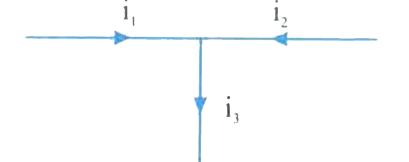Out of the following functions representing motion of a particle which represents SHM
I. y=sinωt−cosωt
II. y=sin3ωt
III. y=5cos(3π4−3ωt)
IV. y=1+ωt+ω2t2
A
Only (i)
B
Only (iv) does not represent S.H.M.
C
Only (i) and (ii)
D
Only (i) and (ii)
Video Solution
Text Solution
The correct Answer is:C
Acceleration is linearly dependent on displacement for executing simple harmonic motion
or a=ω2y
d2ydt2∝y
Equations (i) and (iii) satisfy this condition.
|
Topper's Solved these Questions
- OSCILLATIONS BOOK - MODERN PUBLICATIONCHAPTER - OSCILLATIONS EXERCISE - Competition file (Multiple choice question) JEE (Main) & Other State Boards for Engineering Entrance
25 Videos
- OSCILLATIONS BOOK - MODERN PUBLICATIONCHAPTER - OSCILLATIONS EXERCISE - Competition File (JEE (Advanced) For IIT Entrance)
7 Videos
- OSCILLATIONS BOOK - MODERN PUBLICATIONCHAPTER - OSCILLATIONS EXERCISE - Competition File (Multiple choice questions)
20 Videos
- MOTION IN A STRAIGHT LINE BOOK - MODERN PUBLICATIONCHAPTER - MOTION IN A STRAIGHT LINE EXERCISE - CHAPTER PRACTICE TEST
16 Videos
- PHYSICAL WORLD BOOK - MODERN PUBLICATIONCHAPTER - PHYSICAL WORLD EXERCISE - Revision exercises (Long answer questions)
6 Videos
Similar Questions
Knowledge Check
Out of the following functions representing motion of a particle which represents SHM :
(A) y=sinωt−cosωt
(B) y=sin3ωt
(C ) y=5cos(3π4−3ωt)
(D) y=1+ωt+ω2t2AOnly (A) and (B)BOnly (A)COnly (D) does not represent SHMDOnly (A) and (C )Position of a particle varies as y=cos2ωt−sin2ωt. It is
Aharmonic but not SHMBSHM with period (πω)CSHM with period (2πω)Dperiodic with period (πω) but not SHM.The motion of a particle is given by x=Asinωt+Bcosωt. The motion of the particle is
Anot simple harmonicBsimple harmonic with amplitude A + BCsimple harmonic with amplitude (A+B)2Dsimple harmonic with amplitude √A2+B2
The r.m.s. value of I=I1sinωt+I2cosωt is
View SolutionFour functions given below descirbe motion of a particle.
(I)y=sinω−cosωt,(II)y=sin3ωt,
(III) y=5cos(3π4−3ωt),(IV)y=1+ω+ω2t2
Therefore, simple harmonic motion is represented by
View SolutionThe motion of a particle is given by
y=asinωt+bsinωt
The motion of the particle is
View SolutionCurrent in an ac circuit is given by I=3sinωt+4cosωt, then
View SolutionThe displacement of a particle varies with time according to the relation y=asinωt+bcosωt.
View Solution

